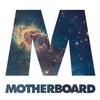Last week I visited Internet Week’s music themed day, which boasted a schedule full of panels discussing the music business in the social age. Indeed, the first panel I caught was called "Funding the Future of Music," featuring a venture capitalist who funds music startups, a guy who started an electronic dance music internet uber-hub, a woman from Pepsi who didn't exactly belong (she liked to talk about “products”), and Noah Rubin, who produced lots of great records, including some Wu-Tang ones.The dominating theme was how spread out music consumption is: we go one place for songs (i.e. Spotify, iTunes, Soundcloud), another for band info (i.e. band website, pitchfork), and another for music videos (i.e. youtube). As Rubin put it, consumers want "different types of content that fit in different categories available in a single place." The path to that single place is not clear. There are some weird trends in internet music consumption that don't make much sense and don't necessarily incorporate usual music products — the dance music guy, Peter Ruprecht, made a good point about the odd fact that we are more than happy to listen to music via YouTube, where we just sit there and look at a static icon of the band's album cover or press photo, and open a million YouTube tabs in our browser. Where does a weird consumer behavior like that fit in? How can we conceptualize a successful multi-platform music hub if music consumption behaviors are so unpredictable?It's hard to tell what this kind of music "hub" would look like. MySpace? That got old. Band websites? Too isolated. Label sites? Too sales-focused. I imagine it would look something like Spotify with a video component, with more informational band profiles (shows, etc). But would people actually use something like that? It’s hard to tell because how we listen to music online is so context-dependent. If you’re on your phone, you usually want to put something on your headphones and forget about it. If you’re by yourself at your computer you probably want to read about the band and maybe watch a music video. If you’re hosting a sloppy party in your bedroom at 5am on a Thursday you’re probably opening a thousand YouTube tabs on your laptop and deflecting suggestions from your lame friend with bad taste as you regrettably allow your music ADD to take over everyone’s ear holes. Streaming music is so flexible – it can be for background sound, dancing, active and passive listening, or researching what you want to buy (steal) next. it’s hard to see how an all-encompassing “hub” could cover all the bases without being clunky and overstretched. But I guess it’s worth a try/some bloated venture funds.
Advertisement
Advertisement
With that done, I popped into "The Record Label, Remixed," which featured heads of young Brooklyny record labels like True Panther and Fool's Gold. They mostly talked about what a label does in the age of "digital distribution," as opposed to the days of pouring a bunch of black goo for hundreds of thousands of records. The panel touched on how grassroots DIY approaches by new bands attract their attention, through things like successful Kickstarter campaigns, sell-out shows, and a strong internet presence. It was well-trod ground, but nice to hear how people who actually make a living running indie labels see the state of the industry ("a burning building" according to one). Labels still matter, and that’s a good thing — they curate good music, get it out there, and make artists money.The evening ended with popular music journalist Bob Lefsetz aggressively ranting at the crowd about too many bands, too much hype, and the strong bullshit detector of today's youth. His main point was refreshing: When faced with the staggering amount of choice available to today's music fan, really superlative work tends to stand out. Among the eight thousand music tabs your friend opened at their shitty house party, a truly great song will stand out amid the cacophony. In a weird way, the shit-ton of music content on the web doesn’t water things down – it raises the bar for quality work. The more a music consumer hears, the more they really know what their taste is, and can seek it out. And that’s why the aforementioned “hub” hasn’t been demanded by consumers – people know how to actively scour the internet and find what they want — they have less need for it to be brought to them.And that about sums up the experience: consumers and good music still rule the day, no matter how many music delivery startups appear. After a day of phrases like "music ecosystems" and "brand building," I needed to escape. I chose the bar bar over the oxygen bar.
